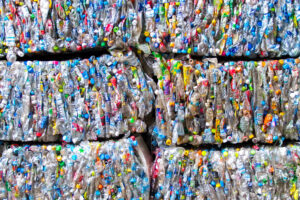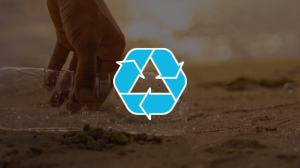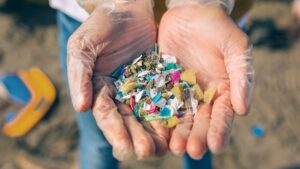Plastic pollution has killed half a million hermit crabs that confused trash for shells
Dead whales beach themselves with hundreds of pounds of plastic in their stomachs. Turtles can’t breathe because plastic straws get stuck in their nostrils. Birds are mistaking plastic for food, feeding it to their hungry offspring.
Now another sea creature is discovering the devastating effects of plastic pollution: hermit crabs. Garbage that has washed ashore has killed more than half a million hermit crabs on remote islands.
According to a recent study in the Journal of Hazardous Materials, an estimated 570,000 hermit crabs die after climbing into plastic debris, confusing it for empty shells every year. It is considered to be the first study quantifying the population impacts caused by plastics on any species.
Researchers studied strawberry hermit crab populations on the Cocos (Keeling) Islands in the Indian Ocean and Henderson Island in the South Pacific, both of which are littered with millions of pieces of plastic. Researchers made the discovery after finding a staggering 451 million pieces of plastic between the islands, the majority of which was buried beneath the sand.
Plastic debris in the ocean can entangle sea creatures and be ingested by them unknowingly. But on land, it can act as both a barrier and a trap to countless populations.
When plastic reaches the beach, it creates a trap for hermit crabs searching for food or water that may be found in the containers. Once crabs enter these slippery vessels, it’s impossible for them to escape.
Hermit crabs are not born with their own shells, searching for new shells each time they outgrow one. When one of them dies in a plastic container, it emits a smell to tell others that a shell is available, unknowingly luring more creatures to their untimely deaths, creating a “gruesome chain reaction.”
“The very mechanism that evolved to ensure hermit crabs could replace their shells, has resulted in a lethal lure,” researchers said.
Crabs play crucial roles in tropical ecosystems, aiding in forest growth and development through the soil. Reductions in crabs may significantly impact plant expansion, scientists said.
Read the full and original story at CBSNews.com



